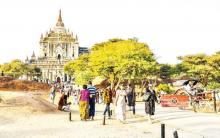Protect MSMEs to ensure long-term commercial viability
SELECTIVE intervention and adaptive service provision must support the operation of micro, small, and medium-sized enterprises (MSMEs) to address market challenges and work process difficulties under the guidance of the efficient MSME Development Work Committee.


